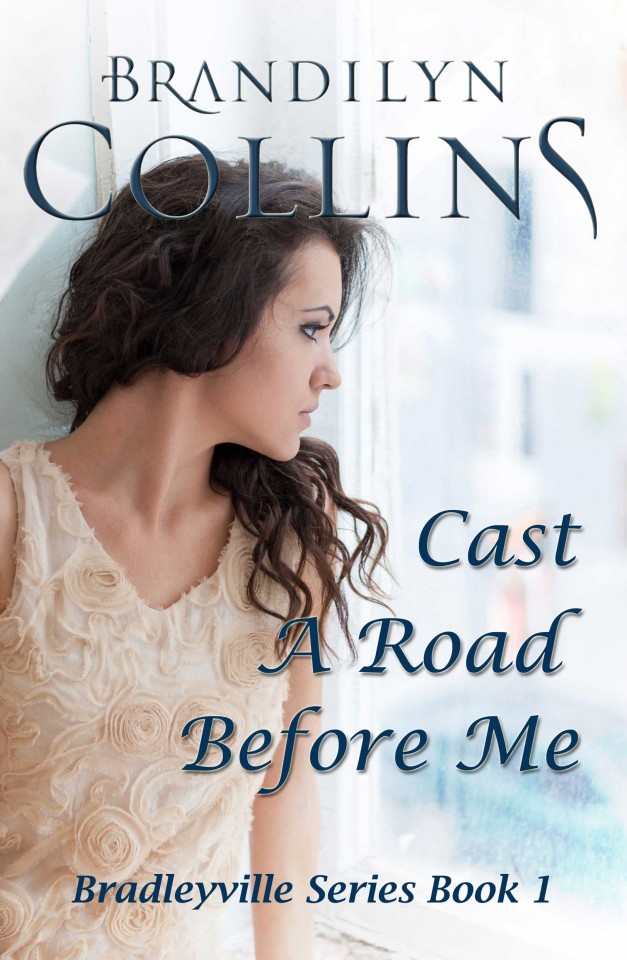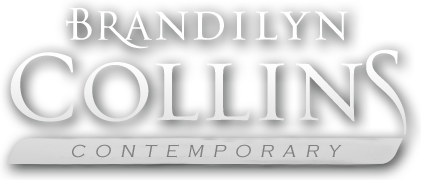
First in the Bradleyville Series
A course-changing event in one's life can happen in minutes. Or it can form slowly, a primitive webbing splaying into fingers of discontent, a minuscule trail hardening into the sinewed spine of resentment. So it was with the mill workers as the heat-soaked days of summer marched on.
City girl Jessie, orphaned at sixteen, struggles to adjust to life with her barely known aunt and uncle in the tiny town of Bradleyville, Kentucky. Eight years later (1968) she plans on leaving—to follow in her revered mother's footsteps of serving the homeless. But the peaceful town she's come to love is about to be tragically shattered. Threats of a labor strike rumble through the streets, and Jessie's new love and her uncle are swept into the maelstrom. Caught between the pacifist teachings of her mother and these two men, Jessie desperately tries to deny that Bradleyville is rolling toward violence and destruction.
Chapter 1
Copyright 2014 by Brandilyn Collins
Copyright 2014 by Brandilyn Collins
The last time I saw my mother alive, she was on her way to serve the poor.
She was wearing one of her favorite dresses, a blue cotton knit with a sash at the waist. She’d had it for years. It was her favorite not because of style, but because it was comfortable and easy to wash. “This dress will do just fine,” she would say whenever I bewailed the notion that she wore it so much to Hope Center, people might think she slept in it. She was far more careful in dressing for work, starching blouses and skillfully mending old skirts so they would not betray her lack of a wardrobe. She’d add one of her three pairs of dime-store earrings, sometimes an inexpensive necklace. But any jewelry was out of the question at the Center, where it would only get in the way or, worse, remind the homeless and hungry that their needs were far beyond our own. As for the blue cotton dress, it had been spit up on by crying babies, dirtied by the spilled soup of children, even torn by the clutching hand of a frightened young mother. Mom would drag home from another long evening at Hope Center, her beautiful face lined with fatigue and a thick strand of her dark auburn hair straggling out of its rubber band, and shake her head good-naturedly over the day’s ruin of her dress. Then she’d wash it by hand and hang it up to dry for the next time.
I often volunteered alongside Mom at the Center. After my homework was done and her workday as a receptionist at an insurance firm was finished, we’d hurry through a simple meal, then drive to the two-story brick building in downtown Cincinnati that provided room and board to the poverty-stricken. On Saturdays I always went with her. Except that Saturday. My high school sophomore finals were the following week, and Mom insisted I stay home to study. “You stay home too,” I said. “You’re exhausted, and you haven’t given yourself a day off in weeks. Let somebody else fill in for you just this once.”
“Oh, but I can’t.” She smoothed my hair in her gentle way. “I promised little Jianying and a whole group of children I’d read to them today, and then I’ve got to teach that class on how to interview for a job. And besides, Brenda’s sick, so I’ve got to oversee cooking dinner.” Brenda Todd had founded the Center ten years previously and acted as manager. Mom had been her “right-hand woman” for eight years.
And so, on that horrific Saturday, my mother kissed me good-bye and walked out the door of our small rented house and down our porch to leave. I followed, still protesting. “Then at least let me come with you. Maybe I can help with dinner, and you can come home after the class. I’ll get somebody to give me a ride home. I can study all day tomorrow.”
She placed her hands on my shoulders. “No, Jessie. Stay here and study. And maybe I can find someone to work for me tomorrow. I wouldn’t mind a day in bed.” She smiled, trying to hide her tiredness as she slid into our battered Chevy Impala.
I will always remember that smile. It is cut into my brain like a carved cameo. I can picture her blue dress. The paleness of her cheeks, void of makeup. The warmth of her brown eyes. She placed her worn white purse beside her on the seat, its bent handle flopping forward. Something about that old purse tugged at my heart. I thought of the long hours she was about to put in—again—for no pay. How many dresses, how many purses could she have bought had she spent as much time earning money?
Mom hadn’t led an easy life herself, yet she was always thinking of others. Her husband—my father—had wandered away when I was a baby, leaving her with nothing but dark memories of his alcoholism. Years later, he was killed in a drunken fight in some bar halfway across Ohio. Her one sister lived in a tiny, remote town in Kentucky, and they rarely saw each other. And Mom had been estranged from her parents for years before their deaths. After the one and only disastrous time we’d taken a chance and visited them, I declared with all the righteous indignation a ten-year-old could muster that we’d never go back again. Within four years of that visit, my grandfather died from cirrhosis of the liver, and my grandmother from heart disease.
As Mom slipped the keys into the ignition, the smile I’ve held in my memory faded from her lips. Then, for the briefest of moments, her eyes slipped shut, and I watched an expression of despair spread across her features. Anxiety for her hit me in the chest. I was just about to argue with her further about staying home when her eyes reopened. She noticed me gazing at her, and the expression vanished. She smiled again, a little too brightly. The car started and she began to pull away from the curb. Her left hand came up, fingers spread. It was a small wave, intimate. “Thanks for caring,” it seemed to say, “but you know I’ll be fine.” I lifted a hand in return and managed a wan smile back.
I sighed as I watched Mom ease down our street and turn right. Then she was out of sight. Two blocks from our house, she would turn left and begin the climb up Viewridge, which curved to become visible from where I stood.
How I wished she had stayed home to rest.
The sound of a mail slot opening clanked through my thoughts. I turned to see Jack, our mailman, pushing envelopes into the Farrells’ house next door. Calling a greeting, I waited near the curb for him, shielding my eyes against the sun.
“Hi, Jessie.” Jack drew near, pulling our mail from his cart. “Almost done with school for the year, aren’t you?” He folded the envelopes inside a magazine and held the bundle out to me. I raised my hand to take it.
That’s when the squealing began.
It was a long keening, the unmistakable sound of frantic brakes. It’s not the noise alone that draws your eyes, it’s the expectation of what’s to follow. Jack’s head jerked up. I whirled around, scanning Viewridge, and caught sight of my mother’s car. Then I saw the vehicle reeling toward it, pulling a trailer. Fishtailing badly.
Dread bolted me to the sidewalk.
Time slowed, suspended in the suddenly suffocating air. In the next second it looked like Mom swerved onto the shoulder toward safety, but she had little room. Nausea seized me, even before the crash. I was watching a horror movie, thinking “No! No!” Then I heard the words yelled and realized they came from me.
Jack murmured a prayer. Vaguely, I registered the sound of mail hitting the sidewalk.
The crash played forever. There was the smash of impact as the truck hit the side of my mother’s car, a grinding of metal and gears, the lingering screech of twisted vehicles careening to a halt. Then utter, dead silence. My feet still would not lift from the sidewalk. Screams gurgled in my throat.
My next memory puts me a block away, breath ragged with sobs, running, running …
© 2018 Brandilyn Collins
All Rights Reserved
All Rights Reserved


